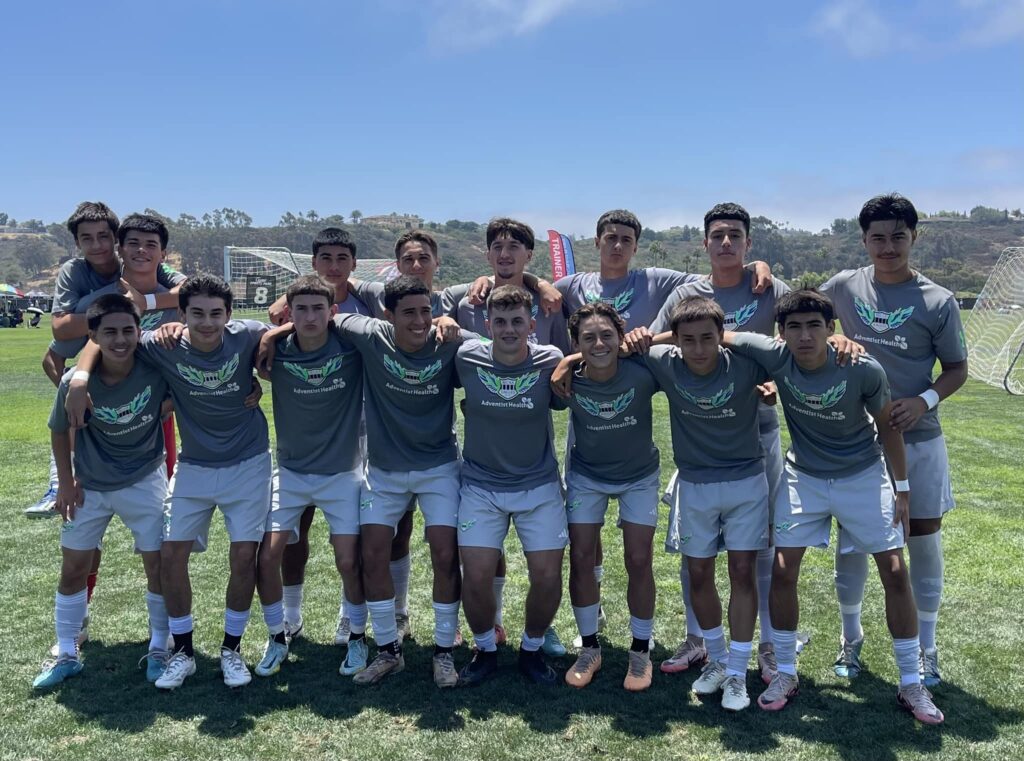Creating a Positive Soccer Culture: A Guide for Parents and Families
 Parents and guardians play a crucial role in shaping the overall experience for young athletes. At MCSA, fostering a supportive and positive culture is paramount and requires collaboration between players, families, coaches, referees, and staff.
Parents and guardians play a crucial role in shaping the overall experience for young athletes. At MCSA, fostering a supportive and positive culture is paramount and requires collaboration between players, families, coaches, referees, and staff.
Here are some things families can do to help create a nurturing environment where kids can learn, develop, and have a blast playing this fantastic game.
-
- Avoid Sideline Coaching
- Let the coach handle instructions during the game. Kids already have a lot to focus on without additional input from the sidelines.
- Refrain from Commenting on Other Players
- Never comment on another child’s play, whether they are on your team or the opposing team.
- Respect the Referee
- No negative comments should be directed at the referee at any time. Their role is challenging and essential for the game. Many of our referees are players themselves and are learning the game from a different perspective.
- Applaud Good Effort and Sportsmanship
- Celebrate good play and displays of sportsmanship from both teams. Lots of adjectives vs verbs. For example, “WOW, great effort,” or “That pass was amazing,” and less “Pass the ball,” or “Shoot!” Let kids make the decisions and learn from their mistakes as they go.
- View Other Parents as Partners
- Treat parents from both teams as partners on a shared journey. A positive community benefits everyone.
- Playing Time
- At younger ages, coaches will generally balance playing time as much as possible. That might vary from game to game, but over the season, coaches will do their best to balance. When kids get older, playing time is no longer guaranteed, as it is earned with consistent attendance and effort during practice. Keep comments about playing time to yourself during the game. Discuss privately with the coach, focusing only on your child if needed.
- Positive Car Ride Conversations
- On the way home, simply say, “I love watching you play.” Avoid giving unsolicited advice on their performance. If they had a bad game, they already know it! Let the kids bring the game up in conversation.
- Open and Calm Communication with Coaches
- Coaches are open to discussing your child’s development in a calm and reasoned manner. Remember the 24-hour rule after a game or practice. Sleep on any issues; if you feel they need to be addressed, contact your coach or club directors privately. You can rest assured that any issues will be addressed.
- Strive to be Early
- When possible, getting to practice 15 minutes early allows players to get in extra touches while catching up with their friends before the session. For games, MCSA is the further club north in our league, and we travel farther than most teams. We have established a great track record with our League NorCal Premier regarding being on time. Let’s continue to build upon our positive reputation for the quality of play and the way we conduct ourselves on game days. Let’s continue to be a first-rate club and represent our club, players, sponsors, and the entire community with class!
- Understand the Learning and Development Process
- Recognize that learning is not linear. It’s normal for performance to vary from day to day, week to week, and season to season. Even professional teams face challenges with consistency.
- Avoid Sideline Coaching
By adhering to these tips, we can ensure a positive and supportive environment for our young athletes, making soccer a fun and enriching experience for all involved.
Let’s work together to create a culture that prioritizes the joy of the game and the development of our children!
